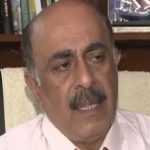Srinagar, Oct 12: As Jammu and Kashmir prepares to have its first elected government in over a decade, Rising Kashmir spoke to residents across the region to gauge their expectations from the new administration. The people’s reactions were mixed, but there was a common hope that the National Conference, which would form a government, would fulfil its electoral promises.
“If the National Conference delivers on its manifesto, it will be beneficial for all sections of society,” said residents. Many pointed out the party’s commitment to addressing unemployment, electricity issues, and social welfare, stressing that these promises, if kept, would improve the lives of people across Jammu and Kashmir.
Abdul Jabbar, an elderly resident of Srinagar, expressed his optimism. “The National Conference has promised to create one lakh jobs for the youth of J&K. If these posts are filled, it will ease the burden on educated youth who are struggling to find employment,” he told Rising Kashmir. He added that the party’s promise to provide 200 units of free electricity would be a “great gift” for the people, particularly those in need.
Similarly, many others echoed these sentiments, highlighting the need for the new government to address rising electricity costs. “The people of J&K have been facing steep electricity bills, and we are unable to bear the financial strain,” said residents of Kupwara district. They added that the promise of 200 units of free electricity would be a much-needed relief. A woman from Sopore’s Apple Town also pointed out that the promise of 12 free gas cylinders and financial aid for women heads of families would be “one of the greatest things” for the people of Kashmir.
Asif Hamid, a student from Kulgam district, stated that political parties often forget their manifestos. He pointed out that, as seen in the past, none of the promises made in the manifestos have been fulfilled by any government. However, the party that stakes its claim must respect the people’s significant mandate. In Kashmir, people have long memories, and as far as my opinion is concerned, I am not sure they will fulfil what they promised during the election campaigns.
Abdul Ahad, a shopkeeper in Bandipora, said the return of a local MLA would give the people a direct link to their representatives, allowing them to address their grievances more effectively. “We’ve had no access to higher authorities, but now, with a local MLA, we have someone who will listen to us. He knows that if he doesn’t do our work, he won’t get another chance, so this will push him to work for the betterment of society,” Ahad remarked.
The people of South Kashmir shared similar hopes and concerns. In Anantnag, residents expressed optimism about creating jobs and the promise of free electricity. “If the new government focuses on employment and reduces our financial burdens, it will bring much-needed relief,” said shopkeeper Asif Ahmad. In Pulwama, many hoped that the government would focus on infrastructure development and addressing the long-standing issue of unemployment.
One common concern residents from various districts raised was the rising electricity cost. “Electricity bills have been increasing rapidly, and it’s become difficult for people to afford them,” said a group of residents from South Kashmir. Additionally, many elderly citizens are awaiting their old-age pensions, which have been delayed for months. “We hope the new government will release our pension instalments and increase the amount as well,” said an elderly man from Anantnag.
Over 70 pc of 90 newly-elected MLAs in J&K graduates
More than 70 per cent of the 90 MLAs elected to the Jammu and Kashmir Assembly have declared their minimum educational qualification as graduates, including three who hold doctorate degrees.
According to data compiled by NGO Association for Democratic Reforms (ADR), all three doctorate degree holders who emerged victorious in the recently-held Assembly polls belong to the BJP, which also has six graduates with professional degrees and four post-graduate MLAs.
The National Conference (NC), which emerged as the single-largest party in the polls with 42 seats, has 16 graduates with professional degrees and five post-graduates in their legislature party.
While eight MLAs from the Bharatiya Janata Party (BJP) have declared matriculation as their highest educational qualification, the number of such MLAs in the NC is just one. The BJP has two MLAs who have not passed the Class-10 examination while there is one NC legislator in this category.
The BJP has four MLAs who have passed the Class-12 examination while the number of such legislators in the NC is six.
An overall analysis of the educational qualifications of the new Assembly members reveals that four MLAs have not passed the Class-10 examination while nine are matriculates. For a dozen MLAs, Class 12 is the highest educational qualification.
There are 16 graduates and 32 graduates with professional degrees who are members of the first Assembly of the Union Territory of Jammu and Kashmir, while 12 members have completed post-graduate degrees. There are three doctorate degree holders and two diploma holders in the House as well.
The ADR data also reveals that nine of the 90 MLAs have criminal cases against them, with eight of them facing serious charges that carry a punishment of five or more years in jail.
Five of these MLAs belong to the NC, with four of them facing serious charges, while two BJP MLAs also face serious criminal cases. The other two belong to the People’s Democratic Party (PDP) and Aam Aadmi Party (AAP).
The number of MLAs facing criminal cases has gone up this time. Only five MLAs had criminal cases against them in the 87-member Assembly of the erstwhile state, including two who were facing serious charges.










